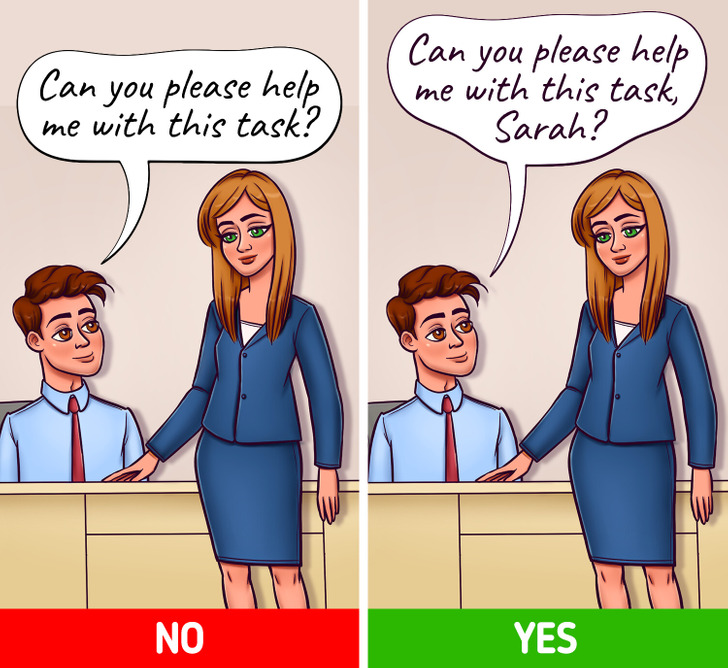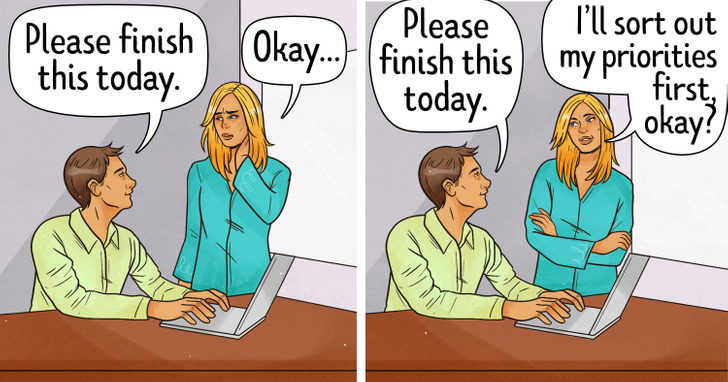8 Skills Bosses Are Looking For in Workers That Have Nothing to Do With Technology / Bright Side
In the modern workplace, technical skills can get you in the door, but it’s the non-technical skills that keep you there and help you thrive. These so-called “soft skills” are what employers and recruiters are increasingly prioritizing, as they enable individuals to collaborate effectively, adapt to change, and foster a positive work environment.
Why soft skills are becoming essential in the workplace.

In today’s rapidly evolving job market, technical expertise is no longer the sole criterion for career growth and professional success. Employers are increasingly prioritizing soft skills – the personal attributes that enable individuals to navigate workplace dynamics effectively.
While technology dominates discussions about the future of work, these non-technical skills are proving to be the backbone of professional development. According to a LinkedIn report, 92% of hiring managers say soft skills are equally or even more important than technical skills. So, what exactly are the skills that make you indispensable in the workplace? Let’s take a look.
Emotional intelligence: The skill that sets you apart

Emotional intelligence (EQ) refers to the ability to understand and manage your emotions and those of others. It’s a cornerstone of effective communication and teamwork. High EQ employees can navigate interpersonal conflicts, motivate colleagues, and foster a positive workplace culture.
A study by TalentSmart found that 90% of top performers possess high emotional intelligence. This skill is particularly valuable in roles requiring collaboration, as it helps bridge communication gaps and fosters trust. To boost your EQ, practice active listening, show empathy, and reflect on your emotional responses in challenging situations.
Adaptability: Thriving in a changing, evolving workplace
The modern workplace is constantly changing, driven by advancements in technology and evolving market demands. Adaptability is the ability to adjust to new challenges and environments, and is critical for career longevity.
Employers value workers who can embrace change and learn new skills quickly. A 2021 McKinsey report revealed that adaptable employees are more likely to succeed in organizations undergoing digital transformation. Cultivate adaptability by staying open to feedback, seeking out new experiences, and viewing challenges as opportunities for growth.
Leadership: Influencing without authority

Leadership isn’t just about managing a team; it’s about inspiring others and driving results, even when you’re not in a formal position of power. Employers look for individuals who can take initiative, offer solutions, and motivate their peers.
According to a Deloitte study, 86% of executives consider leadership development an urgent or important priority. Strong leaders in non-managerial roles can influence workplace culture and push projects forward. Develop leadership skills by volunteering for challenging tasks, mentoring colleagues, and honing your decision-making abilities.
Communication: Bridging gaps effectively

Clear and effective communication is the foundation of every successful team. It ensures that ideas are understood, feedback is constructive, and goals are aligned.
Poor communication costs businesses billions annually. A Holmes Report found that companies with effective communication are 50% more likely to have lower turnover rates. Improve your communication skills by practicing concise writing, engaging in active listening, and tailoring your message to your audience.
Problem-solving: Finding solutions under pressure

Employers value workers who can analyze situations, think critically, and develop innovative solutions. Problem-solving demonstrates resilience and the ability to perform under pressure.
The World Economic Forum lists problem-solving as one of the top skills for 2025. Enhance this skill by tackling complex tasks, brainstorming with colleagues, and reflecting on past challenges to identify what worked and what didn’t.
Teamwork: Building strong collaborative bonds

No matter the industry, teamwork is essential for achieving organizational goals. Being a team player means contributing positively, respecting diverse perspectives, and working towards a common objective.
According to a Deloitte study, organizations with a strong team culture are 21% more profitable. To strengthen your teamwork skills, focus on building relationships, being reliable, and actively participating in group projects.
Time management: Balancing priorities like a pro

In a fast-paced work environment, the ability to prioritize tasks and meet deadlines is invaluable. Time management ensures productivity and reduces workplace stress.
Employers appreciate workers who can juggle multiple responsibilities without compromising quality. Techniques like the Eisenhower Matrix or time-blocking can help you manage your workload effectively.
Creativity: Thinking outside the box
Creativity isn’t just for artists; it’s a valuable asset in any role. It involves thinking outside the box to solve problems, streamline processes, and develop innovative ideas.
The Adobe State of Create report found that businesses prioritizing creativity outperform peers in revenue growth by 3.5 times. Encourage your creativity by exploring new hobbies, collaborating with diverse teams, and challenging the status quo.
How to develop and showcase your soft skills to employers.

While some people may naturally excel in these areas, soft skills can be cultivated through practice and reflection. Start by seeking feedback from colleagues and mentors. Participate in workshops or online courses focused on professional development.
To showcase your soft skills to potential employers, highlight specific examples in your resume and interviews. Use action-oriented language to describe how you’ve demonstrated leadership, adaptability, or problem-solving in past roles. For instance, mention a time you resolved a conflict or streamlined a process in a team setting.
Check out these 14 job interviews that left candidates to wonder, “What just happened?”.


